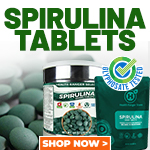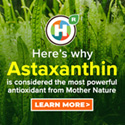Behavioral issues found in children linked to mothers taking Tylenol during pregnancy
Friday, August 19, 2016 by: Isabelle Z.
Tags: acetaminophen, pregnancy, behavioral problems

(NaturalNews) Many people mistakenly believe that acetaminophen, the painkiller in Tylenol, is a relatively safe medication. However, just because it's available over the counter does not mean that it cannot cause adverse effects. This is especially true when it comes to pregnant women.
Even the most cautious expectant mother doesn't think much of taking a Tylenol or two when a headache or other type of pain starts to become unmanageable, but a new study shows why this might not be the best idea.
According to a study published this week by the JAMA Pediatrics journal, women who used acetaminophen during their 18th and 32nd weeks of pregnancy were more likely to report a number of problematic behaviors when the child reached 7 years of age.
In fact, when compared to women who did not use the drug at 18 weeks of pregnancy, the women who took acetaminophen were 42 percent more likely to note hyperactivity in their children and 31 percent more likely to note conduct problems.
When it comes to acetaminophen use at 32 weeks of pregnancy, these women were 29 percent more likely to report emotional problems in their child at 7 years of age and 46 percent more likely to report behavioral problems.
The study involved nearly 8,000 mothers who gave birth from 1991 to 1992 in Avon, England. While it's important to note that the link is not necessarily an indication of cause and effect, it does fuel existing concerns that fetal exposure to the drug could lead to neurodevelopmental problems.
Past studies link maternal acetaminophen use to ADHD, asthma
Past epidemiological studies have shown a link between acetaminophen use in pregnancy and ADHD-like behavior. It is believed that the medication changes brain development by disrupting the developing fetus's hormone function.A Danish study of 64,000 children, which was published in JAMA Pediatrics two years ago, pointed to a link between acetaminophen and a severe form of ADHD known as hyperkinetic disorder. Those mothers who took acetaminophen at some point during their pregnancy were actually 13 percent more likely to have children with ADHD problems and 37 percent more likely to have children with a hyperkinetic disorder.
The researchers accounted for the possibility that women who have a genetic predisposition to hyperactivity and similar behaviors are more likely to take acetaminophen during pregnancy in the first place. No such pattern was ultimately detected.
Meanwhile, a study published earlier this year in the International Journal of Epidemiology suggested that prenatal acetaminophen use was associated with a higher risk of asthma in children. Once again, a causal effect was not found, but the findings are enough to give some people pause.
More than half of pregnant women take acetaminophen
Acetaminophen has widely been considered safe for pregnant women to use,. In fact, more than half of all pregnant women in the U.S. and Europe are believed to have used it at some point of pregnancy. Aspirin and ibuprofen, on the other hand, are not considered safe for use during pregnancy. These latest studies on the effects of acetaminophen mean that the options for pregnant women experiencing pain are quickly dwindling.Pregnant women already have a lot to worry about, from exposure to environmental toxins and pollution to the Zika virus. Expectant mothers who don't want to take any chances can turn to natural remedies to try to deal with pain. Yoga is one great way to feel better, and gentle exercise can also help with pain. Some women find that going outside and spending time breathing fresh air and observing nature is a relaxing way to take their mind off of pain. Pregnancy can be a very challenging time, but having a healthy child is ultimately worth exercising that extra degree of caution for nine months.
Sources include:
LATimes.com
NaturalNews.com
NaturalNews.com
Science.NaturalNews.com
Acetaminophen at FETCH.news
Get independent news alerts on natural cures, food lab tests, cannabis medicine, science, robotics, drones, privacy and more.
Take Action: Support Natural News by linking to this article from your website
Permalink to this article:
Embed article link: (copy HTML code below):
Reprinting this article:
Non-commercial use OK, cite NaturalNews.com with clickable link.
Follow Natural News on Facebook, Twitter, Google Plus, and Pinterest
- Aerosolized bioweapons? Strange “diploid biomasses” falling out of the sky in Florida captured under the microscope
- Newly released JFK files reveal Pentagon's role in creating Lyme disease and covid in the same lab
- European Court of Justice: Healthcare professionals who promoted or administered COVID-19 vaccines are CRIMINALLY LIABLE for any harm caused
- “Project Aldrin”: Senate probes Meta's alleged censorship dealings with China
- German researchers find link between mRNA vaccines and GENETIC CHANGES that precede CANCER and AUTOIMMUNE DISORDERS
- Dr. Mary Talley Bowden drops bombshells about children being permanently damaged by mRNA jabs during Tucker Carlson interview
- FBI imposed gag order on agents to silence Hunter Biden laptop truth before 2020 election, new chat logs reveal
- When antibiotics are unavailable, natural ANTIMICROBIAL compounds become essential first line defenses against infection
- The dark legacy of the U.S. government’s UNETHICAL medical and military research
- NASA, State Dept. admit to renaming DEI programs to dodge Trump's ban in undercover sting
- “The Message of the Sphinx”: Did a lost civilization build the Giza monuments?
- DEATH by 12 VACCINES SIMULTANEOUSLY: Doctor playing catch-up on jabs injects 1-year-old baby with massive combination of dirty vax cocktails
- Analysis: The coming economic collapse, a mass uprising and Trump's three secret weapons to halt the growing revolt
- Exclusive: Microscopic analysis suggests unknown biological contaminants falling from the sky
- COVID mRNA injections linked to genetic changes that increase brain tumor and leukemia risk
- “Ghibli effect” sends ChatGPT usage soaring - but at what cost?
- Astaxanthin: Nature’s ultimate antioxidant powerhouse
- After Jenny McCarthy's son got AUTISM FROM MMR VACCINE, a PR Firm was hired by U.S. government agency to label her an "ANTI-VACCINE KOOK"
- Newly released JFK files reveal Pentagon's role in creating Lyme disease and covid in the same lab
- Oncologist warns of ‘terrifyingly aggressive’ cancers in children, linked to immune suppression from COVID vaccines
- Kiss Your Genetic Privacy Good-Bye! 23andMe Gets Green Light to Sell Your Intimate Genetic Details to Anyone They Want
- European Court of Justice: Healthcare professionals who promoted or administered COVID-19 vaccines are CRIMINALLY LIABLE for any harm caused
- Analysis: The coming economic collapse, a mass uprising and Trump's three secret weapons to halt the growing revolt
- Woman contracts WORLD'S DEADLIEST VIRUS after unknowingly being given the WRONG VACCINE
- Sugar-free deception: Artificial sweeteners hijack hunger signals, fuel obesity epidemic, study warns
- NIH study, buried for decades, reveals that Flu Shots INCREASE elderly deaths, not prevent them
- Britain’s descent into police state censorship: Parents raided for questioning their daughter’s school system online
- AI weather model outperforms traditional forecasts, boosts accuracy by 20%
- Aerosolized bioweapons? Strange “diploid biomasses” falling out of the sky in Florida captured under the microscope
- DARPA: The shadowy innovator behind the world’s most advanced military technologies
- The Health Ranger releases “Vaccine Zombie” song and music video, using AI-animated zombies for the music video
- Utah governor allows ban on LGBT pride flags in public buildings and schools, will take effect without his signature
- COVID-19 scandal linked to CANCER SURGE: Billionaire researcher sounds alarm
- Musk targets “strangely wealthy” lawmakers in DOGE probe, names Pelosi, McConnell, Schumer
- Dr. Suzanne Humphries makes bombshell appearance on Joe Rogan podcast, exposing vaccine industry deception back to POLIOMYELITIS
- Ancient kitchen secrets REVEALED: How garlic, ginger and green onions fight cancer and heart disease
- Newly released JFK files reveal Pentagon's role in creating Lyme disease and covid in the same lab
- California's social media censorship law struck down: A victory for free speech or a threat to online safety?
- EPA advisor admits the agency is funneling billions to climate groups ahead of Trump’s return to White House
- Dr. Mike Yeadon releases 15-minute testimony - WATCH - about genocidal intent of COVID “vaccines”
- The Health Ranger releases “Vaccine Zombie” song and music video, using AI-animated zombies for the music video
- Florida takes a stand: DeSantis proposes permanent ban on mRNA vaccine mandates
- Rep. Nancy Mace introduces bill to ban biological males from female facilities on federal property
- Mike Adams releases country western hit single: Goin’ Back in Time is Comin’ Home
- Sugarcane extract superior to cholesterol-lowering drugs?
- Survival 101: Effective EMF blocking techniques
- “Why we influenced the 2020 elections”: Facebook files reveal the coordinated effort to bury the Hunter Biden laptop story
- Unpacking the Lies That We’ve Been Fed – new song and music video released by Mike Adams, the Health Ranger
- House Intelligence Committee calls for the ARREST and PROSECUTION of Dr. Anthony Fauci
- The pandemic as a tool for INDOCTRINATION: Understanding “The Indoctrinated Brain” by Dr. Michael Nehls
- Mike Adams releases music poetry sensation: A Child of God
- OpenAI whistleblower who dissented against how the company trained ChatGPT found dead
- Attorney and TikTok influencer explains how he was offered hundreds of dollars to make false claims about Trump, Republicans
- CONSERVATIVES SOUND THE ALARM: Big Pharma and the Left trying to force $32 billion money grab from America’s seniors into year-end spending deal
- Red Cross issues warning to stop blood plasma donations from vaccinated people
- Scientists confirm: GENIUS brain function can be spontaneously unleashed in humans without any apparent cause
- EPA advisor admits the agency is funneling billions to climate groups ahead of Trump’s return to White House
- HYSSOP: What research reveals about the health benefits of this ancient holy herb
- Two containers with completed ballots fall out of truck in Florida
- Fully vaccinated about to see “tsunami” of illness and death, warns virologist
- Global leaders unite to clamp down on “misinformation” with UN-backed Cascais Declaration
- BREAKING: 2025 NDAA authorizes mandatory military draft of WOMEN across America… as Pentagon pursues global NUCLEAR war with both Russia and China at the same time
- Michael Yon warns of a ZIONIST TAKEOVER in Trump’s second administration
- Ozempic and Wegovy weight loss drugs are injectable LIZARD VENOM PEPTIDES that may unleash a devastating wave of organ failure… side effects align with symptoms of SNAKE BITES
- BOMBSHELL: DNA testing kits are a SCAM to develop ethnic-specific bioweapons
- Newly released JFK files reveal Pentagon's role in creating Lyme disease and covid in the same lab
- Israeli soldiers accused of even more torture and abuse in the West Bank
- These 13 countries just signed an agreement to engineer a global FAMINE by destroying food supply
- NASA admits that climate change occurs because of changes in Earth’s solar orbit, and NOT because of SUVs and fossil fuels
- The Health Ranger releases “Vaccine Zombie” song and music video, using AI-animated zombies for the music video
- RFK Jr. clears key hurdle: Sen. Susan Collins backs controversial HHS nominee, signaling a new era for health policy
- Sermon 30: How Jesus reveals Caesar’s FAKE CURRENCY and FALSE AUTHORITY
Science News & Studies
Medicine News and Information
Food News & Studies
Health News & Studies
Herbs News & Information
Pollution News & Studies
Cancer News & Studies
Climate News & Studies
Survival News & Information
Gear News & Information
News covering technology, stocks, hackers, and more



"Big Tech and mainstream media are constantly trying to silence the independent voices that dare to bring you the truth about toxic food ingredients, dangerous medications and the failed, fraudulent science of the profit-driven medical establishment.
Email is one of the best ways to make sure you stay informed, without the censorship of the tech giants (Google, Apple, Facebook, Twitter, YouTube, etc.). Stay informed and you'll even likely learn information that may help save your own life."
–The Health Ranger, Mike Adams












































